ABSI Graduate Students
These FSUCML Graduate students are not only imperative to the function and ingenuity of the marine lab, but also to that of ABSI. Their enthusiasm, inquisitiveness, and creativity are contagious to everyone with whom they interact on the laboratory campus, including the staff, each other, and the faculty.
Adam Alfasso, Ph.D. student (Advisor Dr. Sandra Brooke)
Donaven Baughman, Ph.D. student (Advisors Dr. Joel Trexler and Dr. Dan Okamoto)
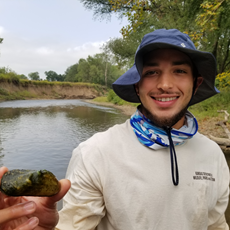 dbaughman@bio.fsu.edu
dbaughman@bio.fsu.edu
My research interests are mainly focused in coastal ecology and how larval and juvenile invertebrates respond to environmental change. The juvenile stage is critical to survival and recruitment, and ultimately to the success of wild populations. My current work with the eastern oyster (Crassostrea virginica) aims to understand how salinity regime effects juveniles ability to induce morphological defenses in response to their predators. I also hope to look at reef structure and density on the survival of juvenile oysters to provide useful insight for management and aquaculture purposes.
Jenny Bueno, Ph.D. student (Advisor Dr. Sandra Brooke and Dr. Sarah Lester)
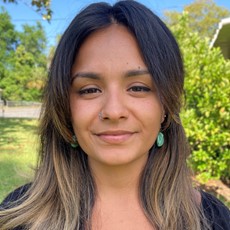 jbueno@fsu.edu
jbueno@fsu.edu
My research interests include marine conservation and restoration. I have previous experience using remote sensing techniques to detect coastal change in lacustrine environments. I am interested in applying these techniques and learning more ways to conserve and restore marine ecosystems. Co-advised by Dr. Sarah Lester and Dr. Sandra Brooke, I aim to research the decline and future restoration of Apalachicola Bay as part of the Apalachicola Bay System Initiative.
Emily Fuqua, Ph.D. student (Advisor Dr. Sandra Brooke)
efuqua@fsu.edu 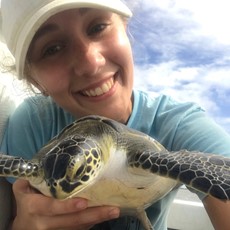
My research interests are based in applied ecophysiology. I am interested in how anthropogenic changes to the environment, such as increasing ocean temperature and increasing anoxic zones, affect an organism’s physiology, and in turn, how physiological changes affect an organism’s behavior and ecology. My PhD research will focus on Eastern oyster health in the Apalachicola Bay system, and my goal is to assist fisheries managers and conservationists in restoring and preserving a healthy oyster population in Apalachicola Bay.
Morgan Hawkins, Ph.D. student (Advisor Dr. Sandra Brooke)
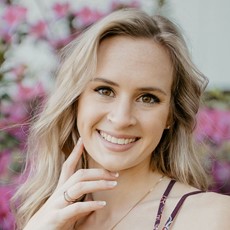 meh17d@my.fsu.edu
meh17d@my.fsu.edu
My research focuses on using natural and artificial chemical cues oyster larvae use to set onto a substrate, and using those cues to increase settlement rates in a hatchery setting. Using these findings, I will be able to research which techniques are optimal for restoration purposes. I hope to also explore southern bay scallops, by developing a technique to use within our own experimental hatchery to better understand their diminishing populations, ultimately finding which restorative methods are the most successful in returning a healthy number of scallops to our bay.
Michael Wintermantel, Ph.D. student (Advisors Dr. Sandra Brooke and Dr. Don Levitan)
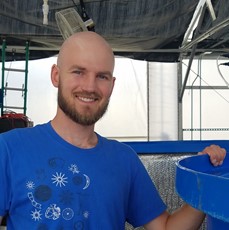 mwintermantel@fsu.edu
mwintermantel@fsu.edu
My research interests focus on the organismal biology and physiology of marine organisms. I am particularly interested in larval and planktonic life-stages, and am working with the Apalachicola Bay System Initiative to help understand the challenges faced by the larvae of Eastern Oysters. I aim to understand how stress early in an oyster’s life affects its development, survival, and reproductive success as an adult. I hope to contribute my research to restoration efforts of the Bay’s ecosystems and to find a solution for future enjoyment of a healthy ecosystem and sustainable oyster fishery.

